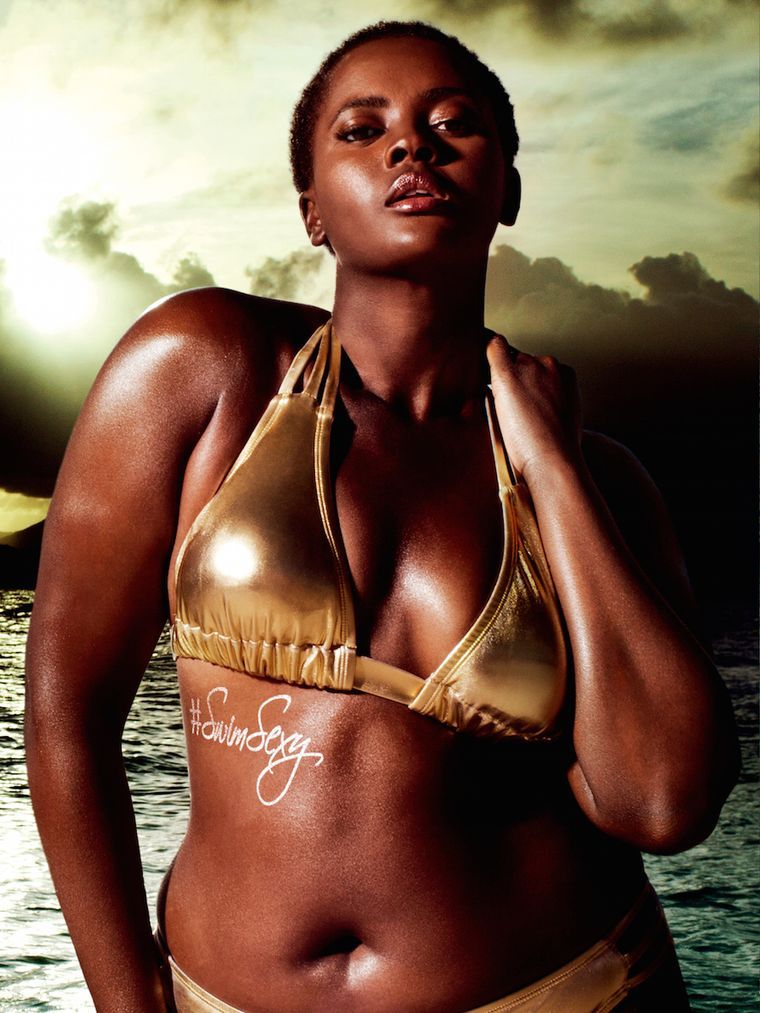When Philomena Kwao was first scouted in London in 2012, she had big dreams. At the time, she was wrapping up her Master’s degree in international health management and policy, and the prospect of moving to New York to launch her modelling career seemed super exciting.
However, her excitement was shortlived when she finally moved to New York, as she didn’t book any jobs for an entire year in 2013. In an interview with Mic, she said:
When I first came to New York [in 2013], I didn’t work at all. I came over as a dark-skinned woman, a plus-size woman and I had my head completely shaved. They weren’t quite sure what brands wanted to do with me. For the commercial plus-size industry, they always wanted a girl next door look, but then I remember Lupita [Nyong’o] became famous and she really, really changed how beauty was perceived. I was here for almost a year before I was booked. Then Lupita came and all of a sudden I was booked.
Since then, Philomena has booked many gigs, including being featured in campaigns of big brands including Fabletics, Torrid, Target, and Lane Bryant. She also appeared in a swimsuit ad in the 2016 issue of Sports Illustrated.
Speaking on reactions to her swimsuit feature in Sports Illustrated, she said, “I got so many messages from young, dark-skinned women letting me know that they were so glad a different face of beauty was being shown in this magazine. They felt like they had been getting relegated to a certain standard of beauty, and I showed them something different.”
In addition to being a model, Philomena is also an inclusivity advocate. She frequently voices her opinions regarding the need for diversity in the fashion and beauty industries
“I think it’s just that the fashion industry can only accept one thing at a time… It’s like OK, well if we’re going to add plus, then let’s keep it hourglass and white…Everyone needs to realize the responsibility they hold and realize where they can make a difference,” she says.
“It’s on the agent’s side, getting more darker-skinned girls in. A brand will say, ‘We should use a black plus-size model’ but then use one with a Rihanna or Beyoncé skin tone. They don’t pay attention to the tonal differences. It’s recognizing the nuances in the bigger, wider scheme of things. You can’t say you’re inclusive when you only have one plus-size, hourglass white model.”

